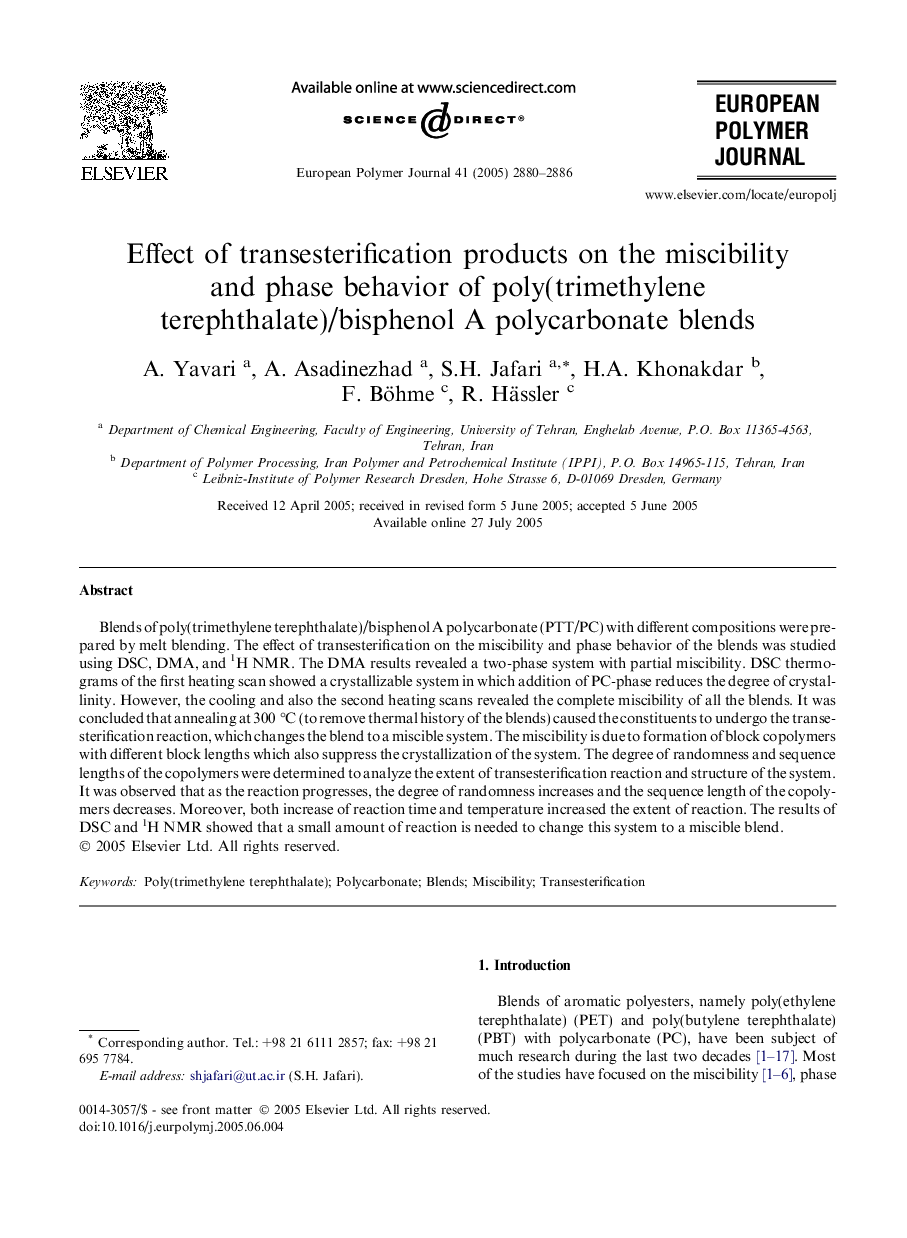| Article ID | Journal | Published Year | Pages | File Type |
|---|---|---|---|---|
| 1397048 | European Polymer Journal | 2005 | 7 Pages |
Blends of poly(trimethylene terephthalate)/bisphenol A polycarbonate (PTT/PC) with different compositions were prepared by melt blending. The effect of transesterification on the miscibility and phase behavior of the blends was studied using DSC, DMA, and 1H NMR. The DMA results revealed a two-phase system with partial miscibility. DSC thermograms of the first heating scan showed a crystallizable system in which addition of PC-phase reduces the degree of crystallinity. However, the cooling and also the second heating scans revealed the complete miscibility of all the blends. It was concluded that annealing at 300 °C (to remove thermal history of the blends) caused the constituents to undergo the transesterification reaction, which changes the blend to a miscible system. The miscibility is due to formation of block copolymers with different block lengths which also suppress the crystallization of the system. The degree of randomness and sequence lengths of the copolymers were determined to analyze the extent of transesterification reaction and structure of the system. It was observed that as the reaction progresses, the degree of randomness increases and the sequence length of the copolymers decreases. Moreover, both increase of reaction time and temperature increased the extent of reaction. The results of DSC and 1H NMR showed that a small amount of reaction is needed to change this system to a miscible blend.
